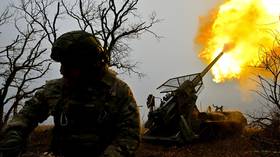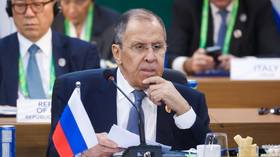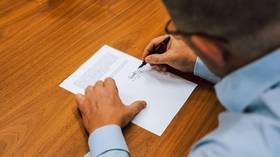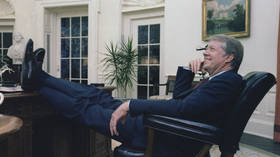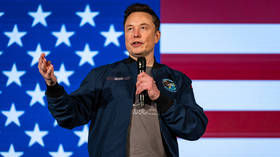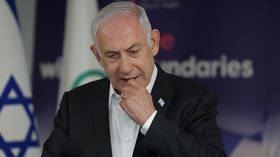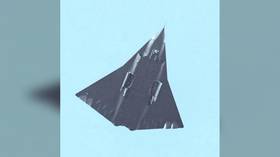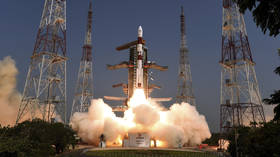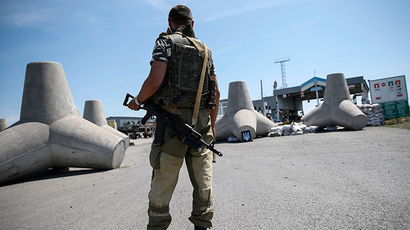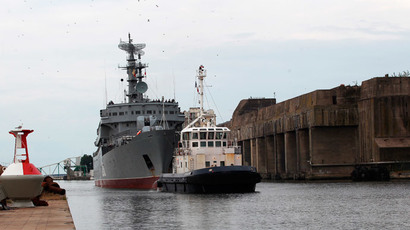‘Every state has right to be different’: Top 10 takeaways from Putin's foreign policy speech

Vladimir Putin said that the Western powers should allow countries around the globe “to live at their own discretion, not under someone’s haunting dictation.” Here are the Top 10 quotes from the president’s meeting with Russian diplomats.
Watch: Putin tells West it’s time to stop turning world into 'global barracks'
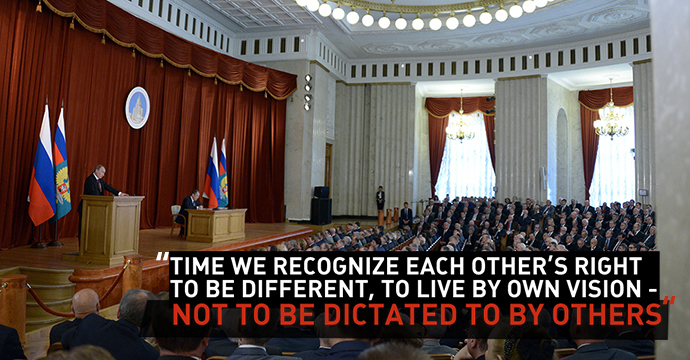
‘Non-interference principle must be fit into European realities’
Western interference in Ukraine led to catastrophic consequences
for the country, Putin said, suggesting measures to prevent the
repetition of a similar scenario in other countries on the
continent.
“The task is to fit the traditional principle of
non-interference into modern European realities, initiating a
serious international discussion of the issue. We all need some
kind of a safety net in Europe, so that the Iraqi, Libyan, Syrian
and Ukrainian precedents won’t turn into a contagious
disease.”
‘Blackmail wrong tool in international relations’
President Putin criticized Washington, which already imposed
sanctions on Moscow after the accession of the Republic of Crimea
into Russia, for making efforts to scuttle Russia’s 1.12 billion
euro deal on Mistral warships with France.
“We know about the pressure that our American partners put on
France to prevent the supply of Mistral [warships] to Russia. And
we know that they hinted that if the French won’t supply Mistral
[warships] then sanctions against their banks will be removed or,
at least, minimized. What is this, if not blackmail?”
However, he once against stressed the importance of close
cooperation between Moscow and Washington.
“We have absolutely no plans to shut down our relations with
the US. It’s true that our bilateral relations aren’t in the best
of shape now. But it’s not our fault, not Russia's fault.”
West should stop turning world into ‘global barracks’
Putin said it was high time for the US and Western Europe to give up their political ambitions and start building mutually beneficial relations with the rest of the world.
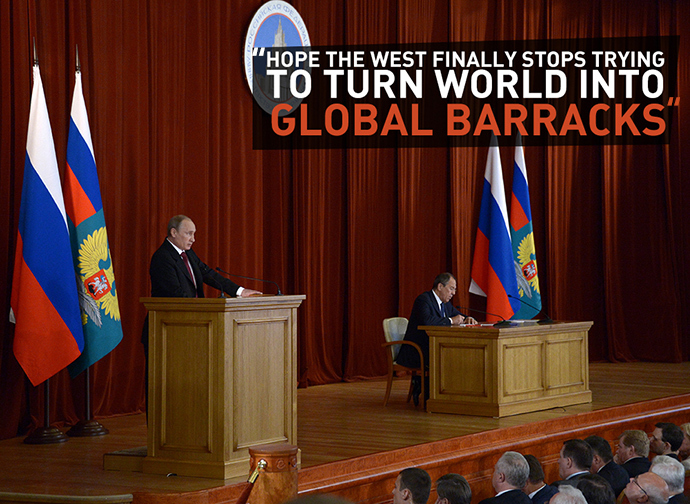
‘Ukrainian president fully responsible for violence’
A significant part of Putin’s speech was dedicated to the events
in crisis-hit Ukraine, where President Petro Poroshenko decided
to not prolong the ceasefire with the rebellious Donetsk and
Lugansk People’s Republics.
“So far, Petro Poroshenko had no direct relation to the
orders to take military action. Now he has taken on this
responsibility in full. Not only military, but also political,
which is more important.”
Putin repeated that Russia won’t interfere into Ukraine, but
stressed Moscow’s readiness to help those fleeing the
battlefield.
“Everything that happens in Ukraine is, of course, the
internal affair of the Ukrainian state, but we feel painfully
sorry that the people, the civilians, are dying. You know that
there are a growing number of refugees arriving in the Russian
Federation and we’ll certainly assist all those in need.”
‘We mustn’t sacrifice our vital interests just to be allowed to
sit next to someone’
Russia has no interest in participating in formats for
international relations where it’s only allowed “to play the
role of an observer, with no final say on key issues,” Putin
said.
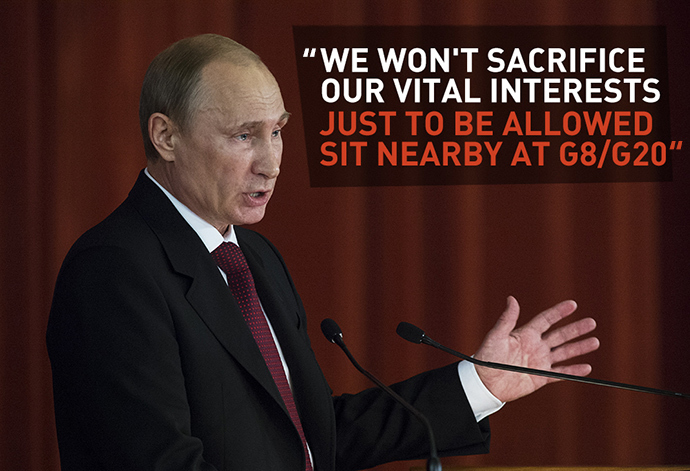
With Gazprom cutting off gas supplies to Ukraine, Putin warned
Kiev that Moscow is aware of its illegal attempts to obtain
Russian gas.
“Well, [the Ukrainians] have been scheming with some of their
partners. They, actually, get our gas, but pay to some European
partner, which doesn’t receive its gas supply in full. We see
everything. But, for now, we aren’t taking any actions in order
to avoid aggravating the situation.”
‘Russia-China relations an example to others’
Putin also praised Russia’s ties with China, which have improved
as a result of the West’s restrictive policies toward Moscow.
“It’s crucial that the Russian-Chinese friendship isn’t
directed against anybody whatsoever. We don’t create any military
alliances. On the contrary, it’s an example of equal, respectful
and productive cooperation between the two states in the 21st
century.”


